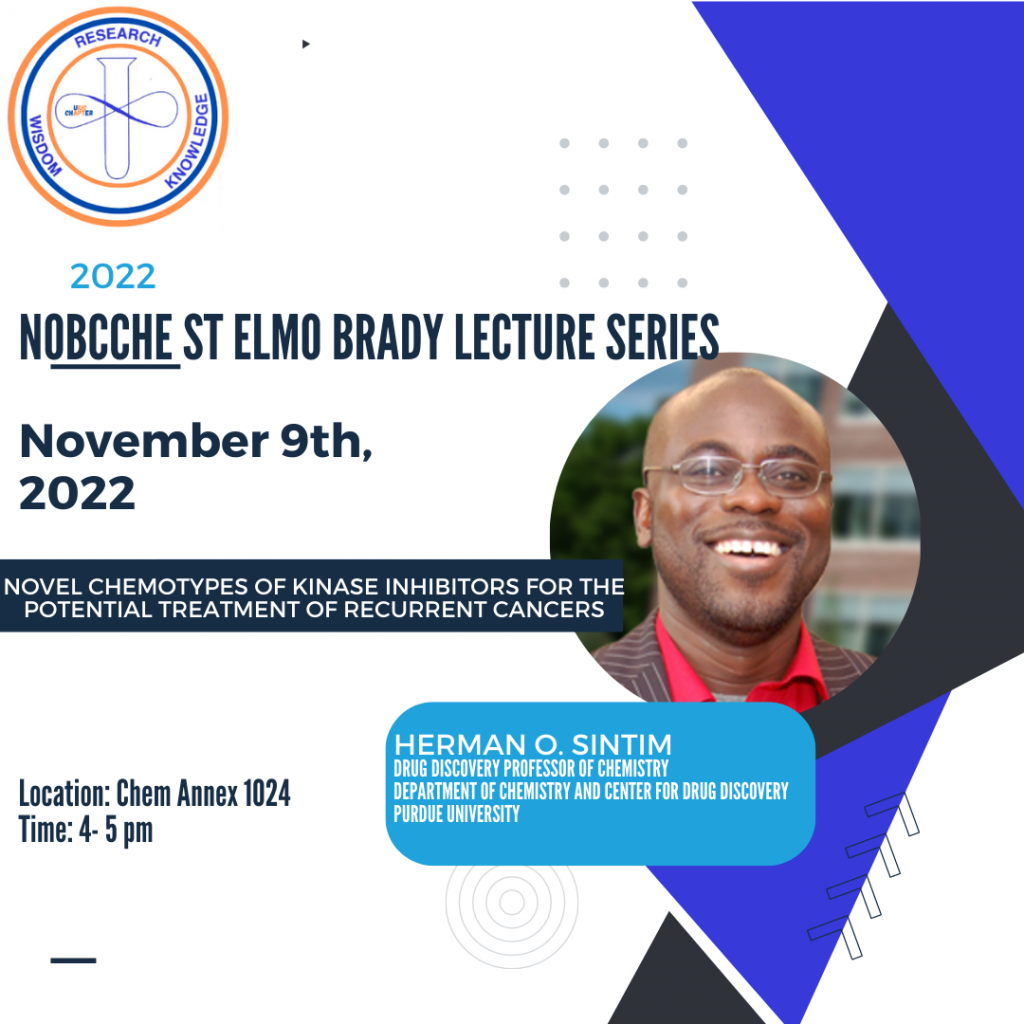Research Talk: Novel chemotypes of kinase inhibitors for the potential treatment of recurrent cancers

Biography:
Herman O. Sintim obtained his BS from University College London (Medicinal Chemistry). He did his DPhil in organic chemistry (total synthesis of zaragozic acids) at University of Oxford under Prof. David Hodgson. He held postdoctoral positions at Oxford and Stanford Universities (with Profs Tim Donohoe (total synthesis of lactacystin) and Eric Kool (Chemical Biology; DNA polymerases) respectively) before joining the University of Maryland at College Park (UMD) in 2006 as an Assistant Professor. In 2012, Herman received tenure and was promoted to Associate Professor. In 2015, Herman was promoted to the rank of Professor at UMD. In October 2015, Herman was awarded an endowed professorship in drug discovery at Purdue University and moved his group to Purdue. In 2017, Herman co-founded KinaRx LLC. From 2020 to 2022, Herman served as Program Director at the NSF (Chemistry). In 2022, Herman became the Richard B. Wetherill Professor of Chemistry and Drug Discovery.
Abstract of Research:
Therapeutic resistance remains a critical issue in cancer treatment. While cancer patients who harbor dysregulated protein kinases benefit from the use of kinase inhibitors (KIs), many fail therapy and almost all patients become resistant to treatment, indicating a critical unmet need to prevent treatment failure.
Thus far (as of May 2022), the FDA has approved 71 protein kinase inhibitors and several others are also in various stages of clinical trials. Although many compounds that inhibit protein kinases have been described in the literature, only a small region of the chemical space has been explored for protein kinase inhibition and the majority of FDA approved kinase inhibitors contain only a handful of core moieties, such as indazole, quinoline, isoquinoline, quinazoline, pyrazole and pyrimidine. To belabor this point, about ~20% of FDA-approved protein kinases contain the pyrimidine moiety while six drugs contain quinazoline and eight drugs contain pyrazole. In other words, about 50% of approved protein kinase inhibitors contain one of pyrimidine, pyrazole or quinazoline, highlighting the lack of progress in using other regions of the chemical space to drug protein kinases. The Sintim group, integrating computational and experimental workflows, has identified a few novel chemotypes that inhibit disease-associated protein kinases (such as FLT3, RET, CDKs, Haspin) with sub-nanomolar IC50 values. Some of these new KI are long residence time (hours) inhibitors and have shown impressive efficacies in animal models of various cancers. Two of such compounds are currently undergoing toxicology studies to determine safe dosing regimens for the potential treatment of drug-resistant FLT3 (F691L and D835V/Y)-driven AML and RET (solvent front mutations)-driven lung cancers.






